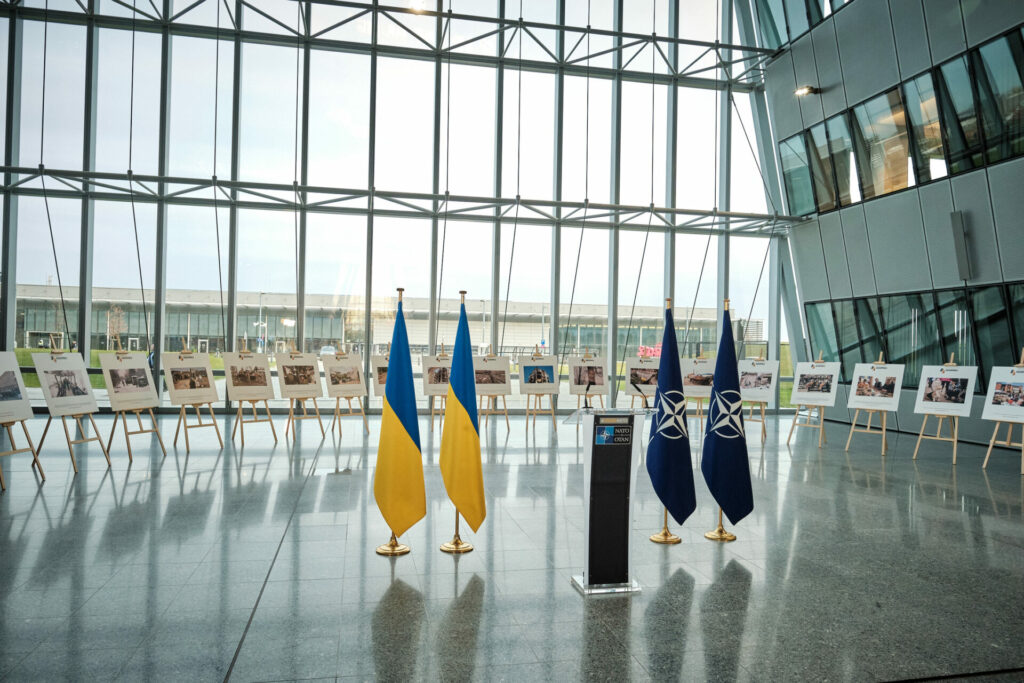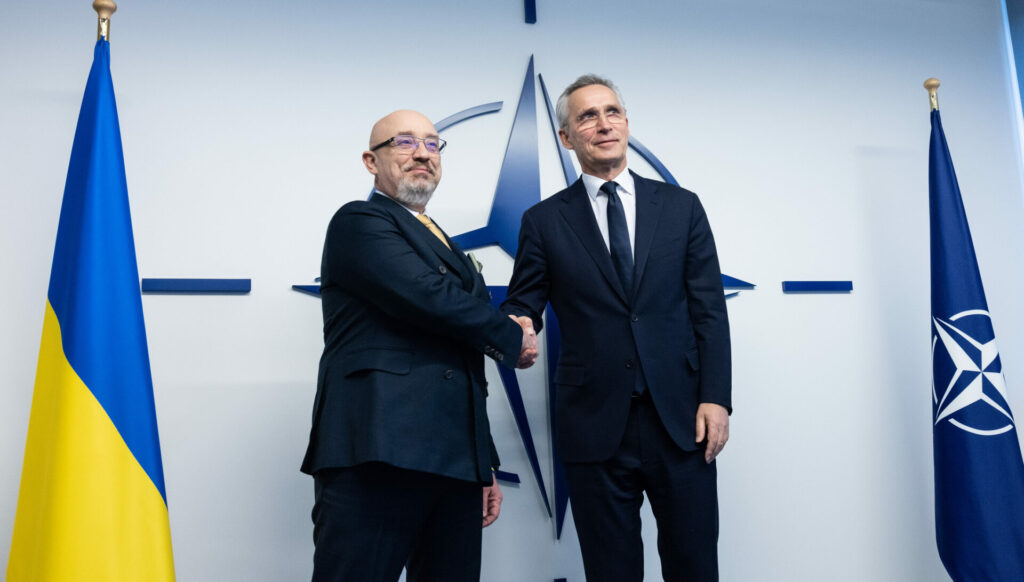Ukraine will become a member of NATO, but in the ‘long-term’, the defence alliance’s Secretary-General Jens Stoltenberg told journalists on Tuesday in the Finnish capital Helsinki, where he met Finnish President Sauli Niinistö to discuss Finnish NATO prospects.
Stoltenberg’s comments come as Russia steps up its assault on the strategic eastern Ukrainian city of Bakhmut, which is viewed as a crucial phase of Russia’s assault against Ukraine’s Donbas region.
Before the start of Russia’s war against Ukraine last year, Russia had expressed its concerns about Ukraine’s potential NATO membership, which it claimed represented a threat to Russia’s security.
Before the war, Western officials dismissed Russian claims that Ukraine was heading towards NATO membership under an accelerated procedure, particularly due to the fact that Ukraine had a “border dispute” with Russia, which would typically be resolved before membership was granted.
Aspirations going back to 2008
Ukraine is already considered to be an “aspirant country” to the military alliance. The country first applied for a NATO Membership Action Plan in 2008, plans which were hampered by the rule of pro-Russian leader Viktor Yanukovych. NATO and EU ambitions are now enshrined in Ukraine's constitution.
Ukraine receives support from NATO through the Comprehensive Assistance Package (CAP), which sets out capacities for capacity and institution building, command control, logistical standardisation, and defence technical cooperation.
With the start of Russia’s full-blown invasion of the country, Ukraine submitted an official application to join NATO under an accelerated procedure. While the application is being considered, it is unlikely to be accepted until Ukraine defeats Russia.

Ceremony at NATO Headquarters marks one-year of Russia’s war of aggression against Ukraine. Credit: NATO
Under NATO’s article 5 defence clause, an attack against one alliance member is an attack against all members. Under current conditions, Ukraine’s membership would risk sparking a global conflict. Stoltenberg’s comments do not exclude the possibility of Ukraine’s eventual membership, but not in the short-term.
“NATO allies have agreed that Ukraine will become a member of our alliance, but at the same time that is a long-term perspective. What is the issue now is to ensure that Ukraine prevails as a sovereign, independent nation, and therefore we need to support Ukraine,” Stoltenberg told journalists.
High stakes
According to the alliance leader, NATO has a responsibility to prevent Russia’s invasion of Ukraine from turning into a “full fledged war between Russia and NATO.” Tensions between East and West are at the highest level since the Cold War.
“The important thing now is to support Ukraine, then no one can tell exactly when this war ends, but when it ends, we need to ensure that history doesn’t repeat itself, that President Putin cannot continue to attack its neighbours,” Stoltenberg said.
Related News
- Thousands gathered in Brussels to protest Russian invasion of Ukraine
- Opinion poll shows majority of EU citizens continue to support Ukraine
In 2008, Russia attacked its Caucasian neighbour Georgia in support of the self-proclaimed so-called republics of South Ossetia and Abkhazia. Russia was condemned for its invasion by some nations, but little action was taken to curb Russian territorial ambitions. Georgia is also now an aspirant nation to join NATO.
NATO expansion as a result of Russia’s aggression against Ukraine is again on the agenda, with two new member nations, Finland and Sweden, currently negotiating their accession to their alliance. Both countries have the support of all but two NATO alliance members, with Hungary and Turkey demanding diplomatic concessions before approving their accession.

